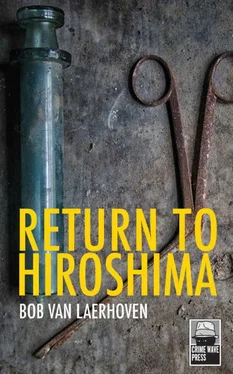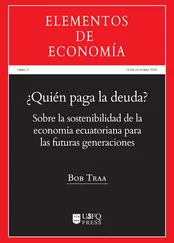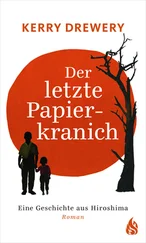Those first attackers, the Iranians.
They weren’t after the German photographer after all.
Hiroshima – in the tunnels under the Suicide Club squat – Mitsuko and Reizo – March 14 th1995
When compared with the cellar where Reizo keeps his writing desk, the tunnel I’m in appears relatively new. The walls are greyish-white and there seems to be a source of light somewhere towards the end. There’s only silence behind me, although I was certain Reizo was following me. I continue along the corridor: a network of cellars, a mixture of smells, caustic soda and spices, briny, reminiscent of the sea. I emerge into a vaulted junction with a grill above letting in just enough daylight to make out a couple of barrels and a shapeless pile of garbage in the right hand corner. The smell of rubber is nauseating. Cellars are rare in Japan because of the danger of earthquakes. I stop. Can I go back? I’m certain Reizo won’t be afraid to use his weapon if he catches me. All I can hear is my own racing pulse, yet I sense an approaching sound, an invisible quivering of something huge coming in my direction. The quivering becomes a terrifying drone, gets louder and louder, then thunders past me and slowly fades to an almost imperceptible quiver. The sound came from behind a metal door in the right hand wall. I realise I’m in one of the Astram storage bays, Hiroshima’s almost entirely surface metro, which was built the year before when the city hosted the Asian Games. I saw some of the construction work on television and remember the first train’s maiden trip, the chain of rubber tyres flanking either side, and the reported high speeds. Only two stations are built underground because the region is mountainous and mostly unstable. They must have started to dig out the service tunnels from the cellars beneath the Suicide Club squat. I take a quick look at the garbage in the corner. Discarded tyres and strips of rubber. I try the metal door. Locked. I walk towards the pile of rubber. Perhaps I can use it to… out of the darkness Reizo appears, marching towards me with the mask of the storm god Raijin covering his face. He has a katana , a classical sword, in his right hand .
At that moment a metro train whistles in the distance.
Its sound is as piercing as the spontaneous howl of laughter I let out at the ridiculous sight of the young madman.
Hiroshima – Dr Adachi’s apartment near the Peace Tower – Takeda, Becht and Yori – March 14 th1995
Rumours have been doing the police corps rounds of late, persistent rumours. Some are saying that a number of disgruntled officers have established links with extreme right organisations that are using the economic crisis to push through their particular vision of society. In their understanding of things, Japan isn’t made to be a parliamentary democracy. They’re determined to get back to the old aristocratic Japan with its strict hierarchical structures, and to do so by force if necessary. Hiroshima, officially the City of Peace, is a yakuza stronghold, crawling with criminal fraternities, often with extreme ideologies. Inspector Takeda is convinced, nonetheless, that there’s more to the case he’s investigating than common gangsterism. He knows the yakuza wouldn’t hesitate to set a couple of goons on a police officer and try to take him out, but only if it was worth their while. He also knows that people are more inclined to kill in the name of an ideology or religion than for simple profit. The two attackers were foreigners like the first; this time Malaysian he thinks. Did chief commissioner Takamatsu arrange with the yakuza for two teams of killers to eliminate him? Is that conceivable? The second pair was less professional than the first, although the club Takeda found in the toilet had been weighted with lead. One blow to the neck would have finished him. Takeda had to make a quick decision and that is what he did. He told Tenchou-san that a couple of men had started a fight in the toilets and that when he tried to intervene they took to their heels. He didn’t want to arouse Becht’s suspicions unnecessarily. He had initially thought that she was the target of the attacks, but the second attack had changed his mind. To be on the safe side, however, he didn’t want Becht to go back to her hotel room, not yet. So he told her that his bosses wanted her to stay in a safe house for a while until they knew more about what was going on. Takeda and a colleague would keep an eye on her. He added that Yori could join her until he had tracked down Reizo Shiga and compared his version of the facts with hers. Becht protested. Why not just guard her hotel room? Takeda informed her that no one would be able to find her in a safe house and gently warned her that further protest wouldn’t be appreciated. He could have her arrested if he had to, under suspicion of aiding and abetting. He had expected her to object, appeal to her status as a foreigner, but she didn’t. Her interest in Yori, who had followed their exchange in silence in the hope that she would understand the gist of it in spite of her limited English, was clear to see. A whisper of jealousy took Takeda by surprise, but he put it down to infantile reflex. His next thought surprised him even more: he remembered bouts of jealousy as a boy, because he felt awkward, clumsy, unrefined, a half-blood, someone who didn’t really belong anywhere. The idea took him unawares. He had refused to pay attention to his life and his own emotions for years. It was like a map dotted with white unexplored regions and minefields everywhere.
The inspector turns into the road leading to Ujina harbour. He glances in the rear-view mirror at the two young women in the back of his black and white police car, a Subaru Legacy. Takeda’s sticking his neck out by going it alone and he knows it. On one side of the quiet street, with its overhead carpet of electrical cables – typical of Hiroshima – there’s a monument erected at the end of the nineteenth century to commemorate Japan’s victory in the war against China. The monument was renamed the Peace Tower in 1947 to appease the American occupier. Takeda thinks the change of name is ridiculous: anyone looking at the warlike eagle perched on top of the monument isn’t likely to imagine that this magnificent lump of stone has anything to do with peace. It’s all about pride and dominance.
Dr Adachi lives in a 1960s apartment block with a steel staircase on the outside. The building only has two apartments, an unheard of luxury in today’s Japan, and is half hidden behind a couple of electricity poles and a trio of cedars.
As he gets out of the car and makes his way to the back, it dawns on inspector Takeda that there are cracks in his life that risk causing his apparently calm exterior to collapse at any moment. An inexplicable melancholy washes over him. He looks up at an armada of white butterflies fluttering around the cedar trees. He then turns to Yori’s gloves.
She senses him looking and holds up her right hand, limp at the wrist like a swan with a broken neck: “The dragon bit me.”
Hiroshima – Dr Adachi’s apartment near the Peace Tower – Becht, Takeda, Adachi and Yori – March 14 th1995
“There was a time I would’ve laughed at that theory of yours,” says Dr Adachi with the affected circumspection of an experienced drinker. “But in today’s circumstances, nothing surprises me. You should try to remember that the attackers may have had another motive. Commissioner Takamatsu is a career man and if you ask me he’s capable of just about anything. But this?” Dr Adachi delicately swills his Scotch. He was a single malt man until the crisis forced him onto cheaper blended whisky. With the composure of a born boozer he’s managed to conceal from both women that he’s already had a skinful. Takeda had called him from Tenchou-san’s restaurant. Without explaining why, he had asked the police doctor if he would be willing to accommodate both women in his apartment. For how long? He didn’t know. Not long. Adachi had laughed and then barked into the phone: “You know they’re safe with me.”
Читать дальше












